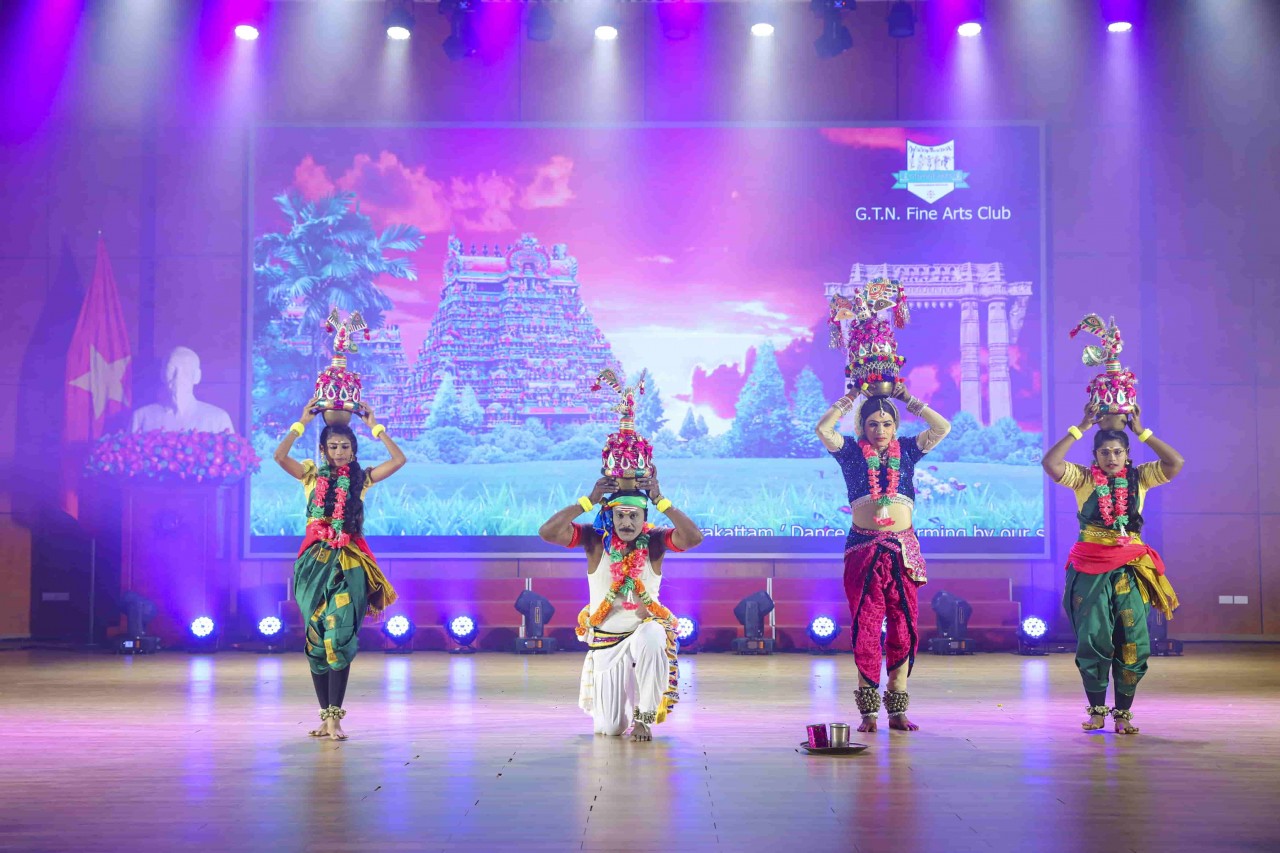India rolls out “world's largest” Covid-19 vaccination campaign
India plans to inoculate some 300 million people, or more than 20% of its 1.3 billion population, against Covid-19 in the first phase of the vaccination exercise, according to CNBC.
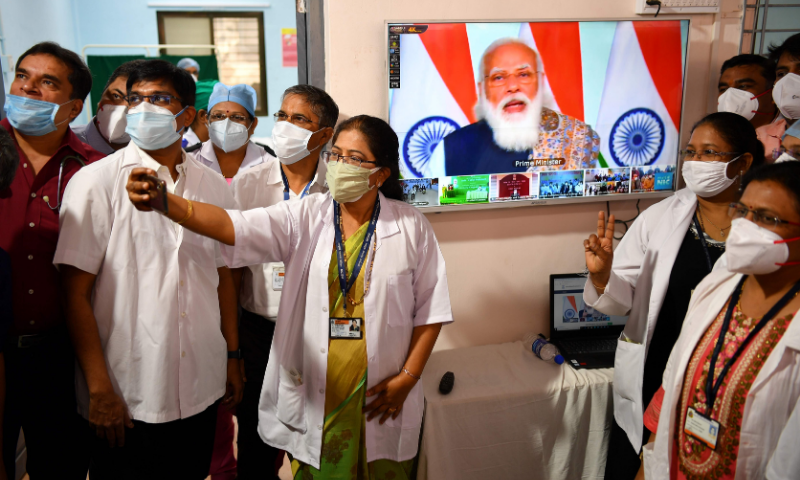 |
| Health workers prepare for the COVID-19 vaccination drive for frontline health workers at a government hospital in Mumbai, India, on Jan. 15. Photo: AP/ Rajanish Kakade |
Indian airlines have started delivering the first doses of vaccines to Delhi and other major cities, including Kolkata, Ahmedabad, and tech hub Bengaluru, tweeted Civil Aviation Minister Hardeep Singh Puri earlier this week.
Priority for the shots will be given to health-care and other frontline workers — an estimated 30 million people. That would be followed by those above 50 years of age and other younger, high-risk individuals.
The rollout will involve close collaboration between the central government and states.
"With the courage, you have shown to combat coronavirus, the same courage is required during the vaccination process,” Modi said.
“Today’s first vaccine being given to someone associated with the healthcare system is a way of the society paying back the debt they owe to them."
He asked the public to avoid rumors around the vaccines' efficacy and to continue being cautious even after they had received a shot.
India has also developed a digital portal called Co-WIN Vaccine Delivery Management System. It will provide real-time information on “vaccine stocks, their storage temperature and individualized tracking of beneficiaries,” according to the health ministry.
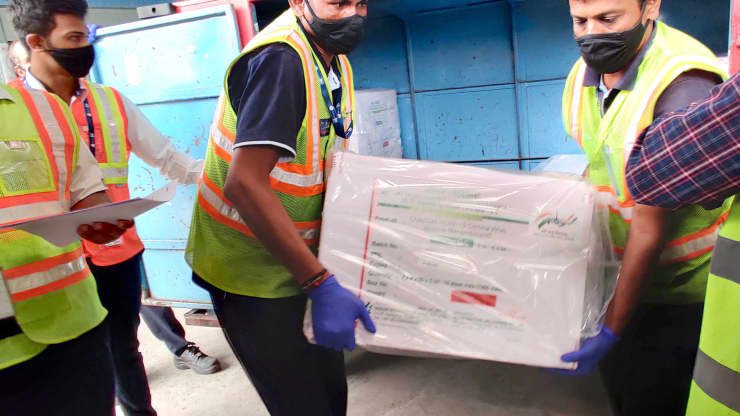 |
| Bangalore Airport workers transfer carton boxes containing vials of Covishield vaccine developed by the Serum Institute of India in Bangalore, India, Jan. 12, 2021. Photo: Stringer/ Xinhua/ Getty Images |
“India’s expertise in vaccine manufacturing and experience with mass immunization campaigns has prepared it well for ‘phase 1’ vaccinations set to begin this weekend,” Akhil Bery, South Asia analyst at Eurasia Group, wrote in a report this week.
“India has a long history of immunization campaigns, including its Universal Immunization Program that inoculates 55 million a year, and will rely on this expertise to distribute coronavirus vaccines,” he added.
India approves AstraZeneca and local COVID vaccines
India's drugs regulator gave final approval for the emergency-use of two coronavirus vaccines, one developed by AstraZeneca and Oxford University and the other by local company Bharat Biotech and a state-run institute, said Reuters.
The AstraZeneca/Oxford shot, already approved in Britain, Argentina, and El Salvador, will take the lead and Bharat Biotech's COVAXIN will be administered under stricter conditions given no efficacy data has been released for it.
The Drugs Controller General of India V.G. Somani said the overall efficacy of the AstraZeneca/Oxford vaccine was 70.42%, while Bharat Biotech's COVAXIN was "safe and provides a robust immune response."
The British-developed AstraZeneca/Oxford shot is being made locally by the Serum Institute of India (SII) and will be branded COVISHIELD, while Bharat Biotech has teamed up with the government-run Indian Council of Medical Research.
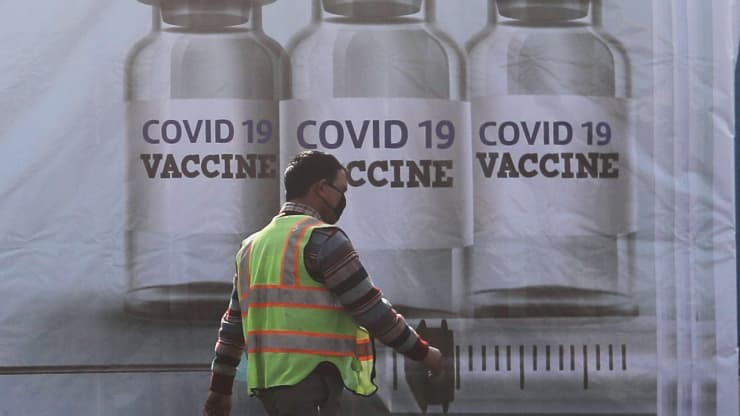 |
| A ground staff walks past a container kept at the Cargo Terminal 2 of the Indira Gandhi International Airport, which according to the officials will be used as a COVID-19 vaccine handling and distribution center, in New Delhi, India December 22, 2020. Photo: Anushree Fadnavis | Reuters |
A lawmaker from Prime Minister Narendra Modi's nationalist party had earlier complained about the preference for the foreign-made vaccine instead of the local one, whose approval has also raised questions about a lack of transparency in the whole process.
Both vaccines will be administered in two doses and stored at 2-8° degrees Celsius (36 to 48°F), he said, without clarifying the intervals between the shots.
SII, the world's biggest vaccine producer, has already stockpiled more than 50 million doses of the AstraZeneca/Oxford vaccine even without a formal supply deal with the government.
India’s health secretary on Tuesday said the Indian government has signed procurement agreements for 11 million doses of Covishield at 200 Indian rupees ($2.74) per dose and 5.5 million doses of Covaxin at an average cost of 206 rupees per shot, which is likely to be cheaper than what they will cost in the private market.
South Asia’s largest country is also the world’s biggest vaccine manufacturer and is said to produce about 60% of all vaccines sold globally.
As such, India’s production of Covid vaccines is expected to play a major role in global immunization drives against the disease.
| India currently has more than 10.5 million reported coronavirus cases, second only to the United States. More than 151,000 people have died from Covid-19 in India, according to Johns Hopkins University data. But daily reported figures show the number of active infection cases is declining. |
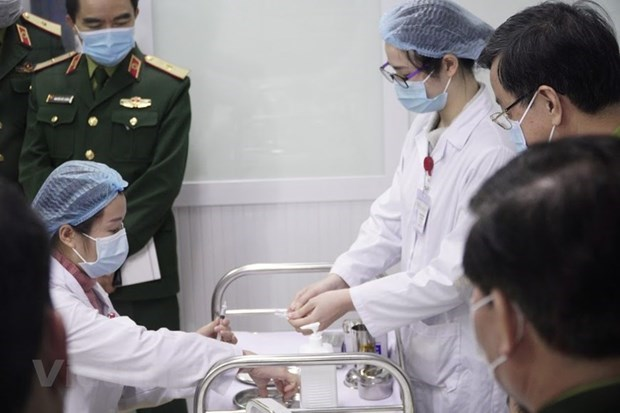 | Vietnam’s COVID-19 vaccine trials strictly observe WHO’s guidance The trials of COVID-19 vaccine in Vietnam strictly follow the guidance of the World Health Organisation (WHO) and international organisations in terms of safety and ... |
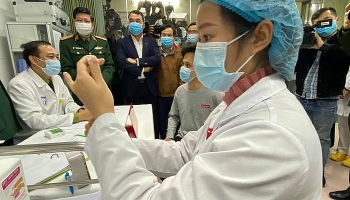 | Poll: Vietnam, China and India most positive about coronavirus vaccine According to a 32-nation study in December Vietnam, China and India had the highest levels of Covid-19 vaccine acceptance. |
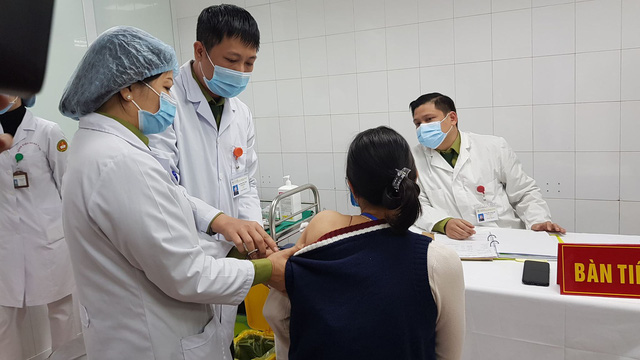 | Volunteers receive highest doses of Vietnam-made COVID-19 vaccine Three people were given Nano Covax, the made-in-Vietnam COVID-19 vaccine, at the highest dose on January 12 during the ongoing human trials. |
Recommended
 World
World
US, China Conclude Trade Talks with Positive Outcome
 World
World
Nifty, Sensex jumped more than 2% in opening as India-Pakistan tensions ease
 World
World
Easing of US-China Tariffs: Markets React Positively, Experts Remain Cautious
 World
World
India strikes back at terrorists with Operation Sindoor
Popular article
 World
World
India sending Holy Relics of Lord Buddha to Vietnam a special gesture, has generated tremendous spiritual faith: Kiren Rijiju
 World
World
Why the India-US Sonobuoy Co-Production Agreement Matters
 World
World
Vietnam’s 50-year Reunification Celebration Garners Argentine Press’s Attention
 World
World

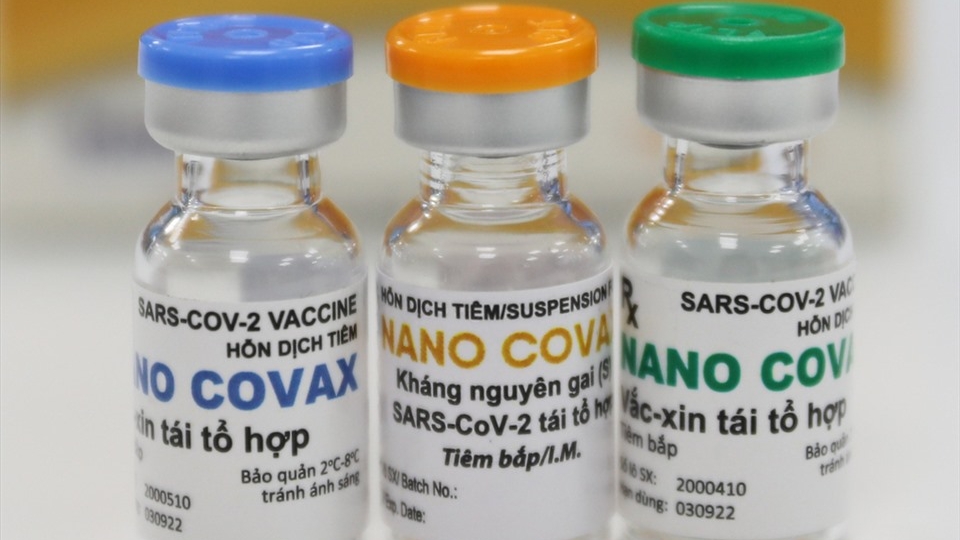
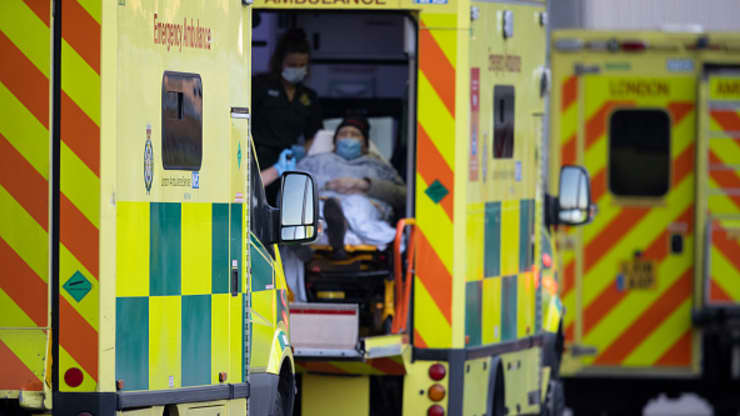
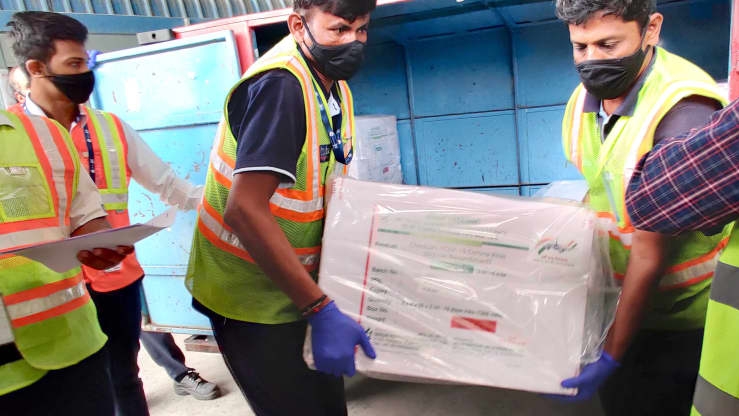



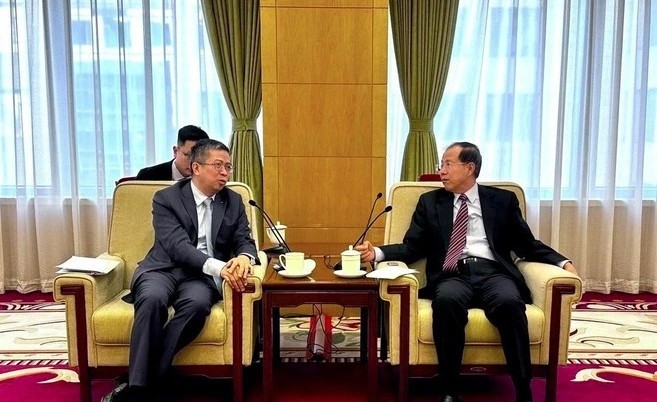

![[Photos] India and Vietnam Unite in Friendship Festival 2024](https://vietnamtimes.org.vn/stores/news_dataimages/2024/122024/19/23/b72443a0d3e09c7d133e23a7d221ca07.jpg?rt=20241219234711)
